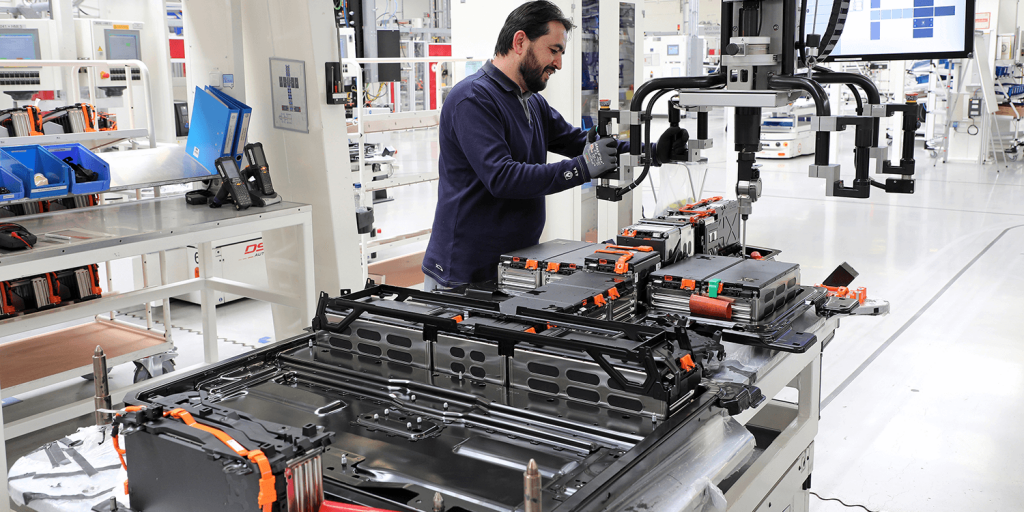Volkswagen is building a lithium-ion recycling plant at its existing battery production facility in Salzgitter, Germany. This new hub will be known as a ‘centre of excellence’ for automotive batteries.
A total of 1200 tons of lithium-ion batteries will initially be recycled at the new facility of Volkswagen Components Group each year. This corresponds to roughly 3000 vehicle batteries.
The innovative recycling centre will be completed in 2020 to prepare for the influx of end-of-life automotive batteries in the next ten years. ‘At the end of the 2020s is when the first large proportion of e-vehicles will have reached the end of their working life,’ Volkswagen comments.
Capacity at the Salzgitter plant will be expanded accordingly in the next couple of years. Besides, Volkswagen says it will establish other recycling plants in the near future.
Powering music
There are two routes the car batteries can take. First, engineers will examine whether the batteries qualify for second-life use. If this is the case, they will power flexible charging stations. ‘These are quick charging stations which can be operated autonomously, for example at large-scale events like music festivals,’ Volkswagen explains. They work according to the principle of a power bank consumers use to recharge their handheld devices.

Recovering black powder
Batteries that are not given a second life will be recycled by the Salzgitter facility crew. In this process, the individual battery parts will first be shredded, then the material will be dried and sieved. Doing so will allow Volkswagen to extract the so-called ‘black powder’. This contains the valuable raw materials of nickel, manganese, cobalt and lithium. ‘These materials then just have to be separated individually, after which they are immediately available again for the production of new batteries,’ Volkswagen points out.
From 53% to 97%
In the long term, the Volkswagen Group strives to recycle 97% of all raw materials. Today, it manages to recycle 53%. The pilot plant in Salzgitter will push this figure up to 72%. ‘There is still some way to go before reaching the grand target,’ Volkswagen acknowldges. ‘Even if a lot of small steps are necessary; we are doing everything we can to make e-mobility sustainable,’ the group declares.
Don't hesitate to contact us to share your input and ideas. Subscribe to the magazine or (free) newsletter.



